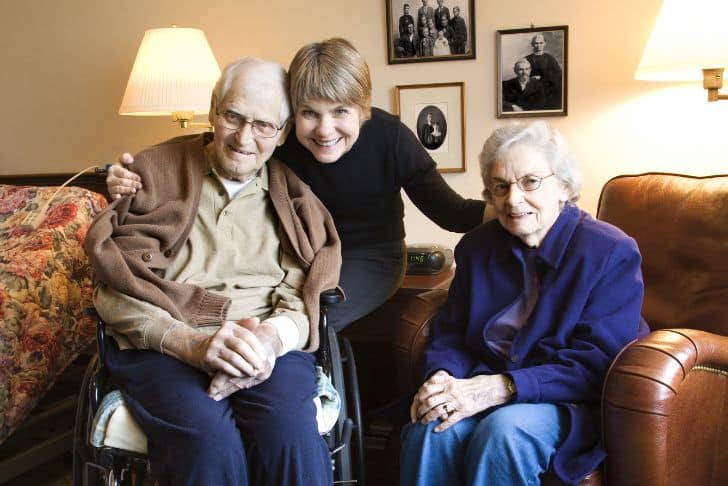If you’ve heard the term ‘dementia’ before, you may associate it with forgetfulness or memory loss. You’re not wrong, but it goes so much deeper than that. ‘Dementia‘ is a broad term that represents a range of symptoms impacting memory, thinking capabilities, and social skills, enough to meddle with one’s day-to-day life. Rather than being a standalone disease, various diseases can trigger dementia with memory deterioration seemingly being a shared symptom. Alzheimer’s disease tends to be the most typical culprit, particularly in the elderly. The symptoms of dementia can be diverse in nature and severity, including cognitive changes like communication impediments or problem-solving difficulties, and psychological changes such as personality shifts, depression, agitation – even hallucinations.
Stemming from damage or obliteration of nerve cells and their connections in your brain, dementia might manifest in different forms like Alzheimer’s disease, vascular dementia, Lewy body dementia, frontotemporal dementia, and mixed dementia. Beyond this, several disorders, from Huntington’s disease, Traumatic Brain Injury (TBI), to Parkinson’s disease can also be the hidden harbingers of dementia. Nonetheless, it’s key to remember that certain dementia-like symptoms, including those caused by infections, immune disorders, or medication side effects, can be reversed with the correct treatment. While you cannot change inherent risk factors such as age or family history, you can make lifestyle adjustments – diet, exercise, cognitive training, upkeeping cardiovascular health – to potentially mitigate your risk of developing dementia.
Understanding Dementia
Definition and Overview of Dementia
Dementia is a broad term that encompasses various symptoms affecting factors such as memory, thinking, and social abilities. These symptoms are severe enough to interfere with a person’s everyday life activities. The typical nature of dementia is such that it impairs your cognitive functions, degrading your ability to remember, reason, or behave socially, making daily life progressively more difficult.
Dementia as a Symptom, not a Disease
More often than not, people confuse dementia with a disease, but that’s not entirely accurate. It can be more aptly described as a collection of symptoms and indicators that suggest an underlying issue relating to one’s cognitive health. Thus, dementia exists not as a disease in itself but is a consequence of several diseases that affect brain function.
Common Criteria for Dementia Diagnosis
Even though dementia is largely related to old age, it is not a normal part of aging. Diagnosing dementia needs a careful examination of the person’s medical history and careful observation of the symptoms. There might be physical assessments, laboratory tests, and brain scans involved to reach a definitive diagnosis.
Symptoms of Dementia
Common Symptoms across all Types of Dementia
All types of dementia carry common features or symptoms. The most apparent symptom is memory loss, particularly remembering recently learned information. Other symptoms include disorientation, mood changes, confusion over time and place, difficulty in solving problems, completing familiar tasks, and understanding visual images.
Cognitive Changes such as Memory Loss
Memory loss typically signals dementia. Other cognitive alterations prompting possible dementia include a decrease in attention span, difficulty in communicating or finding words, issues with reasoning and judgment, and a decrease in visual perception.
Psychological Changes like Personality Alterations
Dementia may also lead to significant psychological changes. It might change a person’s personality drastically and induce unstable mood behavior. People suffering from dementia often feel anxious, depressed, aggravated, and even hallucinate.
Difficulties with Communication and Problem-Solving
As dementia persists and progresses, the individual may start facing trouble with communication – both in terms of speaking and writing – and problem-solving. Tasks which were once straightforward may begin to seem complicated and overwhelming.

Causes of Dementia
Overall Cause: Damage or Loss of Nerve Cells in Brain
The main cause of dementia is the damage to or loss of nerve cells and connections in the brain. The various complications it brings about are functionally correlated with the affected brain regions.
Different Diseases that Cause Dementia
Several diseases contribute to the development of dementia, with Alzheimer’s disease being the most common among older adults. Other diseases that can cause dementia include vascular disorders, HIV, Parkinson’s disease, and Huntington’s disease.
Understanding Alzheimer’s as a Common Cause
Alzheimer’s disease is the most common cause of dementia. It results in deterioration of brain cells caused by two types of nerve-damaging proteins and the disintegration of connections between brain cells leading to their death.
Types of Progressive Dementias
Overview of Progressive Dementias
Progressive dementias refer to conditions that worsen over time, contributing to an increase in dementia symptoms. This group includes Alzheimer’s disease, Lewy body dementia, vascular dementia, And frontotemporal dementia.
Alzheimer’s Disease
The most common type of dementia, accounting for an estimated 60 to 80 percent of cases. Alzheimer’s is characterized by the accumulation of plaques and tangles in the brain and invariably results in progressive memory loss.
Vascular Dementia
Vascular dementia is the second most common dementia type. It often occurs in the aftermath of a stroke where it results from the damage caused to the brain’s blood vessels.
Lewy Body Dementia
Lewy body dementia is the third most common type, where the brain gets damaged from protein deposits.
Frontotemporal Dementia
Frontotemporal dementia includes diseases that primarily affect the frontal and temporal lobes of the brain – the areas generally linked to personality and behavior.
Mixed Dementia
A diagnosis of mixed dementia means more than one type dominates the clinical picture. It often involves some combination of Alzheimer’s disease, vascular dementia, and Lewy body dementia.

Other Disorders Linked to Dementia
Huntington’s Disease
Huntington’s disease is an inherited disorder that leads to the death of brain cells. The first symptoms may include behavioral changes or uncontrolled movement but later progress to dementia.
Traumatic Brain Injury (TBI)
Repeated head trauma, such as experienced by boxers, football players or soldiers, can lead to a form of dementia known as chronic traumatic encephalopathy.
Creutzfeldt-Jakob Disease
This is a rare, degenerative, and fatally fast-progressing brain disorder which eventually leads to dementia.
Parkinson’s Disease
At later stages of Parkinson’s disease, some people develop problems with memory and mental confusion as a result of dementia.
Reversible Causes of Dementia-like Symptoms
Infections and Immune Disorders
Certain infections and immune disorders can cause dementia-like symptoms. However, they are treatable and thus, the cognitive impairment can be reversed once the underlying condition is addressed.
Metabolic or Endocrine Problems
Imbalances in metabolic factors or hormones can lead to memory loss or dementia-like symptoms but these cases are reversible.
Low Nutrient Levels and Medicine Side Effects
Deficiency of certain nutrients like vitamin B12 can cause dementia-like symptoms. Similarly, reactions to medications can also mimic dementia.
Subdural Bleeding and Brain Tumors
These conditions can impede brain function to a great extent, causing symptoms similar to those of dementia. These can be addressed medically or surgically and the cognitive impairment can potentially be reversed.
Normal-Pressure Hydrocephalus
This condition, characterized by an accumulation of fluid in the brain, can induce symptoms similar to those of dementia. It can potentially be treated with surgical intervention and the cognitive symptoms can be improved.

Risk Factors for Dementia
Age, Family History, and Down Syndrome
Three risk factors for developing dementia that can’t be changed are age, a family history of the disorder, and conditions such as Down syndrome that increase the risk of developing Alzheimer’s disease.
Lifestyle Factors: Diet, Exercise, Cardiovascular Health
Frequent physical activity, a balanced diet, and maintaining cardiovascular health significantly reduce the risk of dementia, and these factors are entirely under our control.
Prevention of Dementia
Maintaining a Healthy Lifestyle
A healthy lifestyle is one of the best forms of preventive measures against dementia. This includes but is not limited to a nutritious diet, regular exercise, and maintaining a healthy cardiovascular system.
Nutrition and Exercise
Nutrition and exercise go hand in hand in preventing dementia. A balanced diet and regular physical activity are foundational to overall well-being.
Cognitive Training and Mental Health Maintenance
Cognitive training involves various activities designed to improve memory, problem-solving skills, and other cognitive skills. Consistent mental health maintenance can help ward off conditions like dementia in the long run.
Preserving Cardiovascular Health
Preserving cardiovascular health is constantly associated with a reduced risk of dementia. Therefore, taking care of one’s heart is also about establishing a shield against dementia.
Managing Dementia
Living with Dementia: Daily Tips for Patients
Managing dementia begins with living with it. It means facilitating an environment that promotes calmness and is less likely to cause confusion or agitation.
Psychosocial Support and Therapy
Emotional and social support are beneficial in managing dementia symptoms. Therapy also aids in addressing communication issues, confusion, and mood fluctuations.
Medical Treatment and Medication
Although there is no cure for dementia, medical treatments are available to manage some of the most troubling symptoms and improve quality of life.
Advance Care Planning and Legal Matters
People with Dementia and their families need to make plans for future care. To do this, they should contact specialists who can help provide advice on matters related to healthcare and legal needs.
Caregiving for Persons with Dementia
Understanding the Role of Caregiver
Caregivers play a critical role in providing support, love, and care to individuals who are suffering from dementia. Their role involves more than just medical assistance. It also touches upon emotional, mental, and lifestyle aspects.
Dealing with Behavioral Challenges
Dealing with the behavioral challenges that come with dementia can be daunting. The caregiver needs to stay patient and constantly remain calm to manage such scenarios better.
Navigating Medical Treatments
Understanding the medical treatment & medications prescribed to the patient, managing hospital visits and ensuring timely intake of prescribed medicines form a part of the caregiver’s role.
Seeking Support: Self-Care for Caregivers
Being a caregiver can be stressful, and it can take a toll on one’s health. It is crucial for the caregivers to look after their well-being, seek psychological support, and reach out for help whenever needed.
End-of-Life Care: Preparations and Considerations
Taking care of individuals with a progressive illness like dementia also involves preparing and planning for end-of-life care. This planning is done keeping in mind the comfort and dignity of the person suffering from dementia, along with fulfilling their desires and needs.
